Longevity is Inevitable: Extended Healthspan is Not and Requires Effort
While longevity to 90 years is a given, it takes effort to live healthy for all those years

The Book - Kindle Version Now Available Worldwide
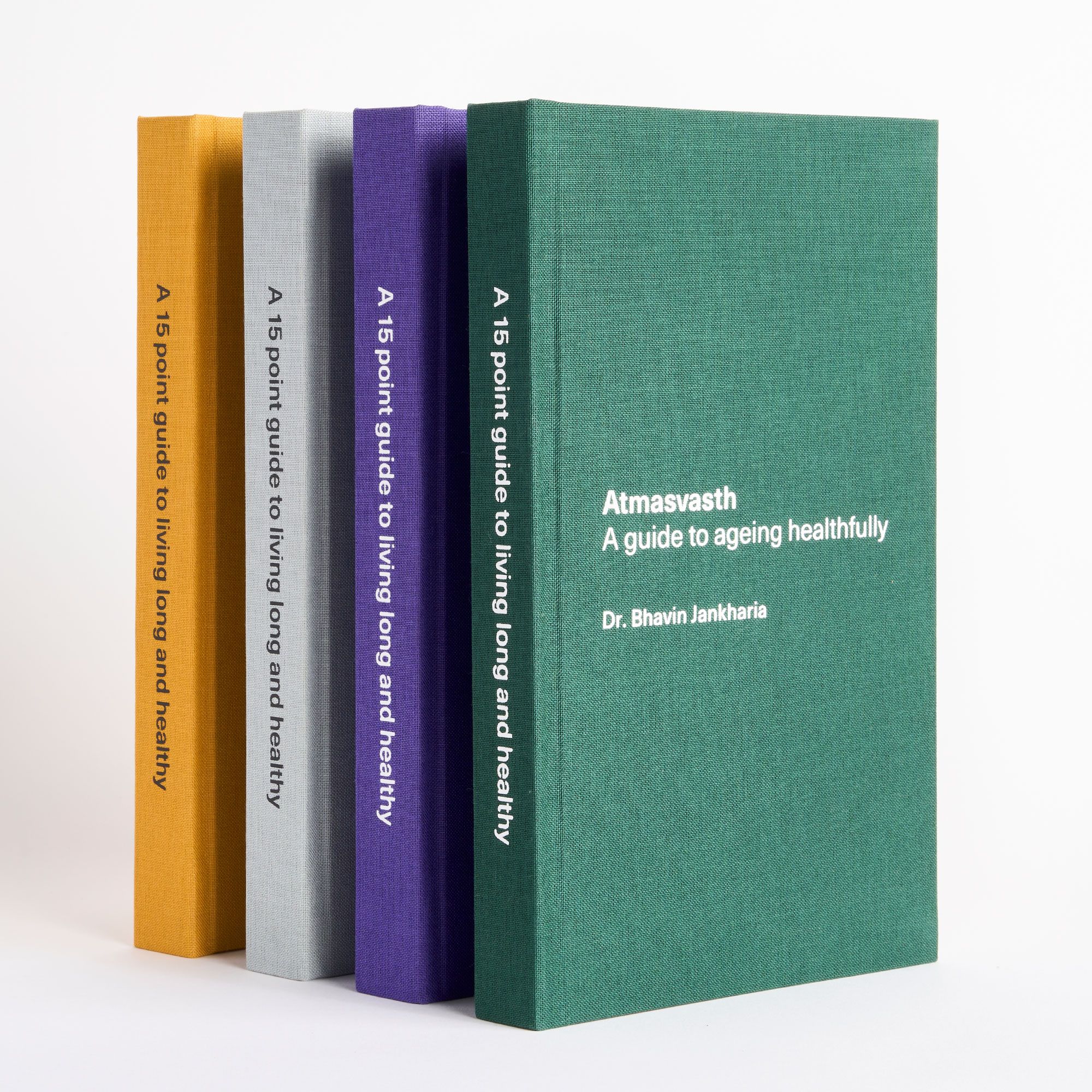
The Detailed 15-Point Guide to Live Long, Healthy
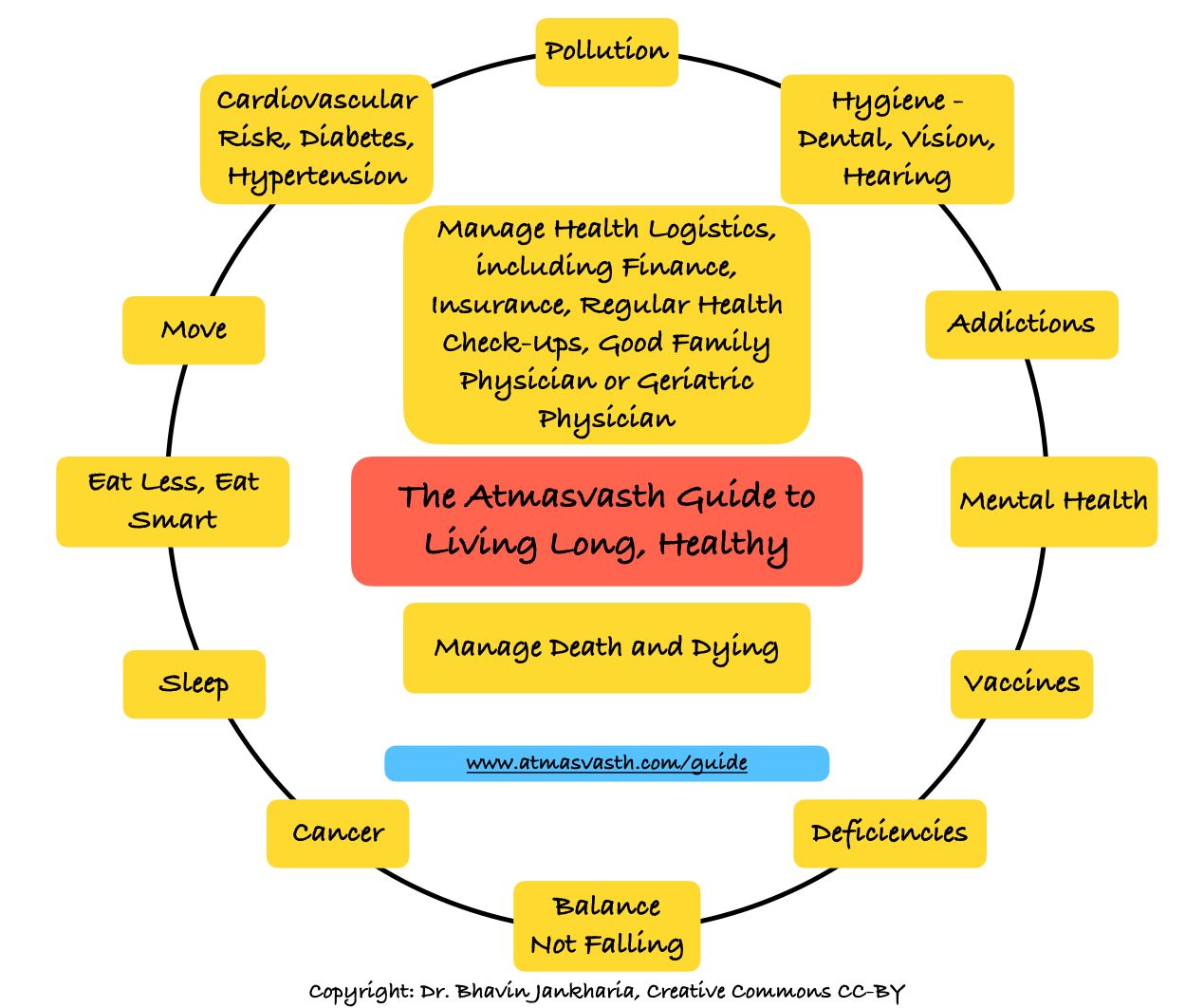
Audio
Text
For the 152nd post of Atmasvasth, which marks now almost 3 years and 4 months of this blog/newsletter, with a book published in the interim, I wanted to come back to the broader issue of longevity and what it means for us.
Everyone is living longer. If you look at the data from the Global Burden of Disease (GBD) 2021 [1], you can see that except for the COVID induced dip, the graphs show a steady increase in life expectancy (LE) in every country in the world.
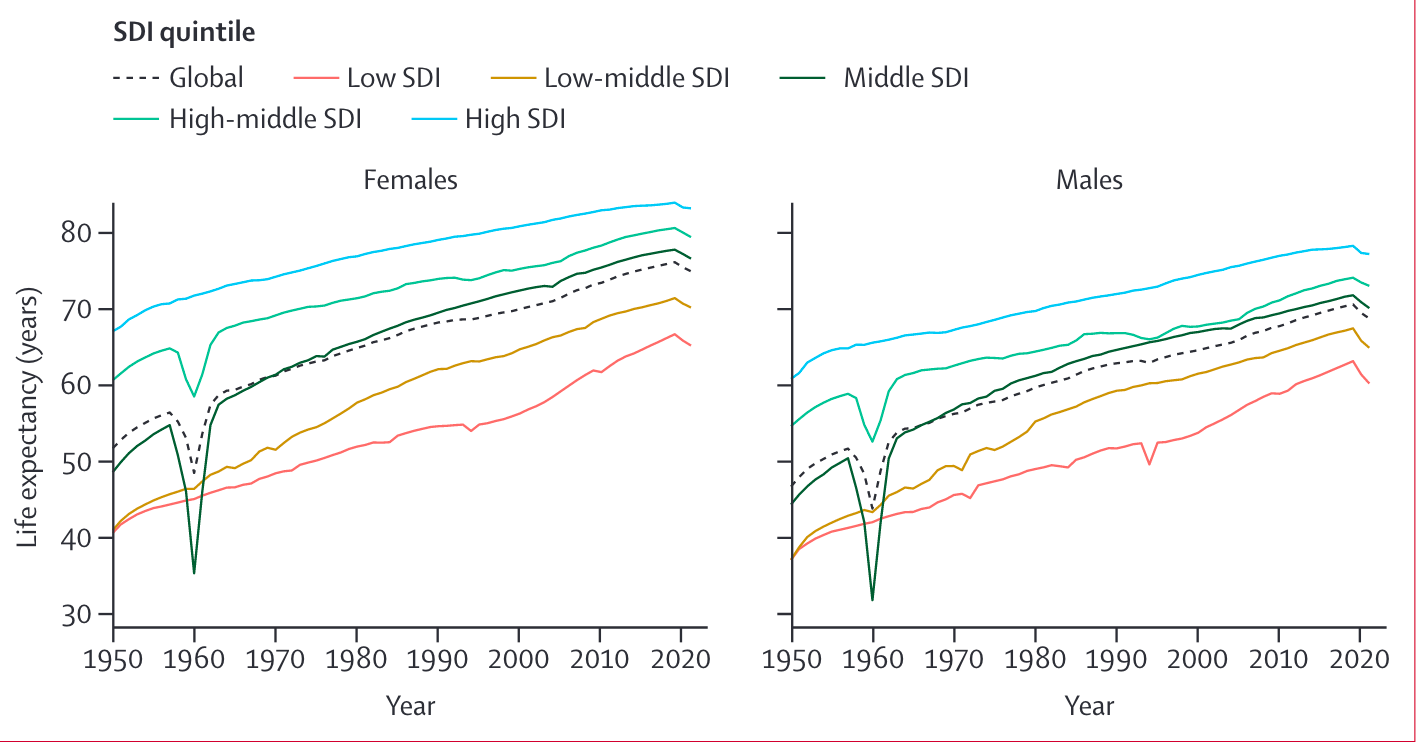
The rich countries live longer, and the rich in those rich countries live longer. For e.g., the average LE in Sweden is 84 years whereas it is 72 years in India. In India as well, a modeling study shows that the rich live far longer than the poor.
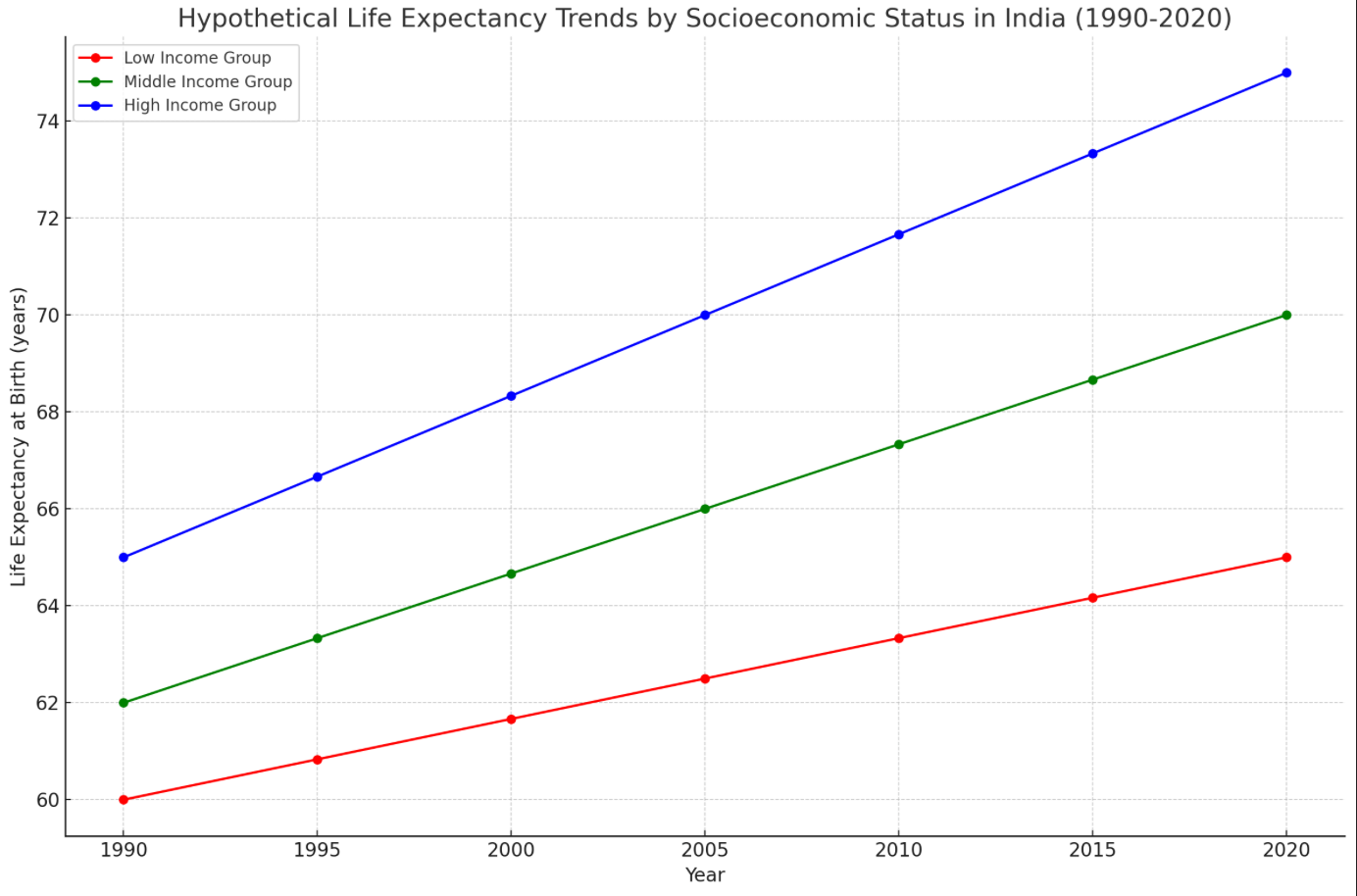
It is not just this data. A recent study from the Women’s Health Initiative concluded that women with a systolic blood pressure of 130 or less had a higher chance of living till 90 [2]. However, irrespective of blood pressure control, 59% (9723 of 16570) lived till the age of 90, those with a systolic blood pressure of 130 or less living longer by about 10-15% as compared to those who had high blood pressure. Most of the participants were educated, relatively wealthier white American women, which goes to show that wealth and education matter and help you live longer, sometimes irrespective of other risk factors.
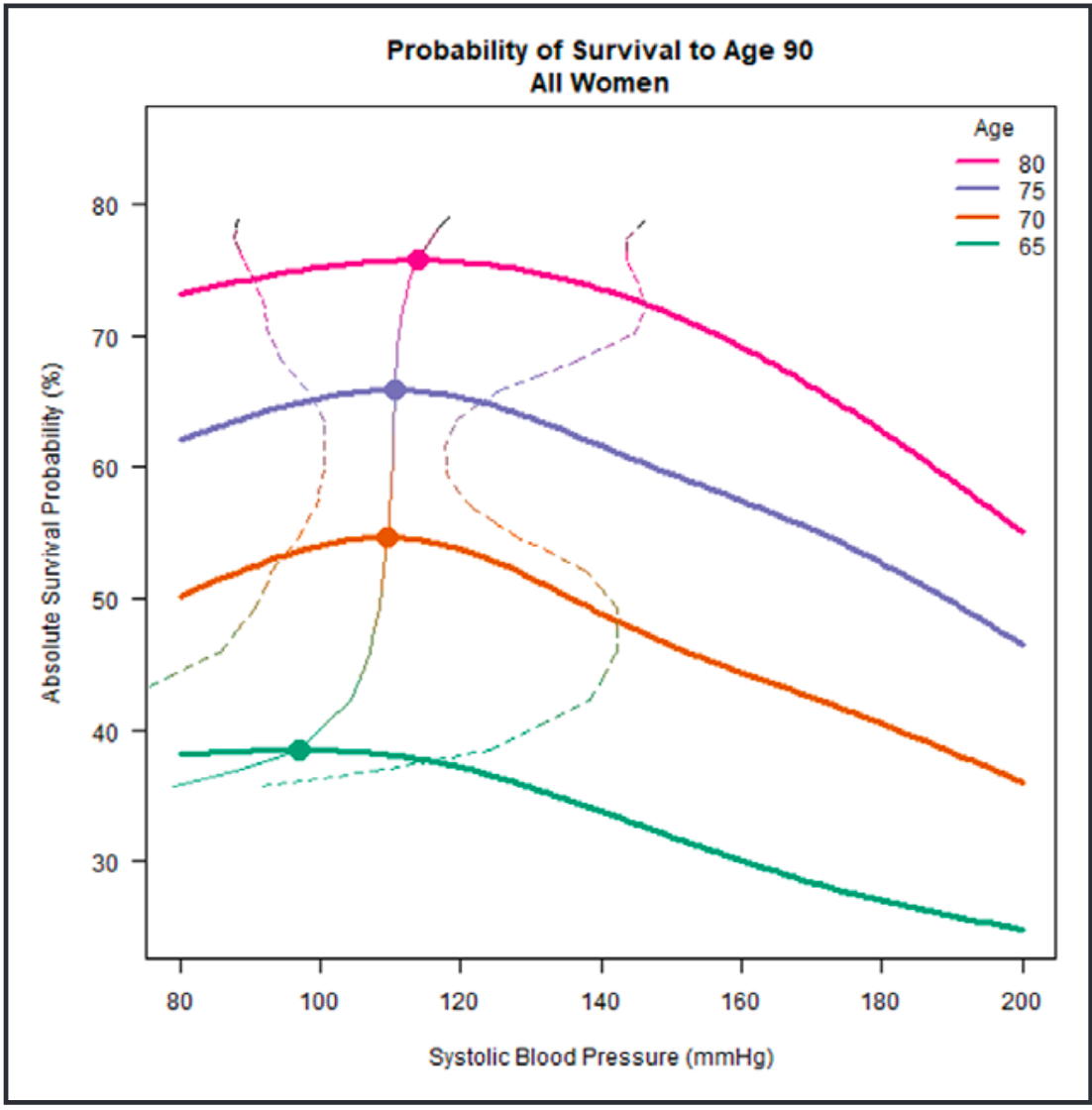
As the GBD data on diseases [3] shows, ischemic heart disease, stroke and COPD are and will still be the three biggest killers, followed by diarrheal diseases, neonatal diseases, lower respiratory tract infections and tuberculosis. Cancers don’t still figure in the top 10 causes of deaths in our country.
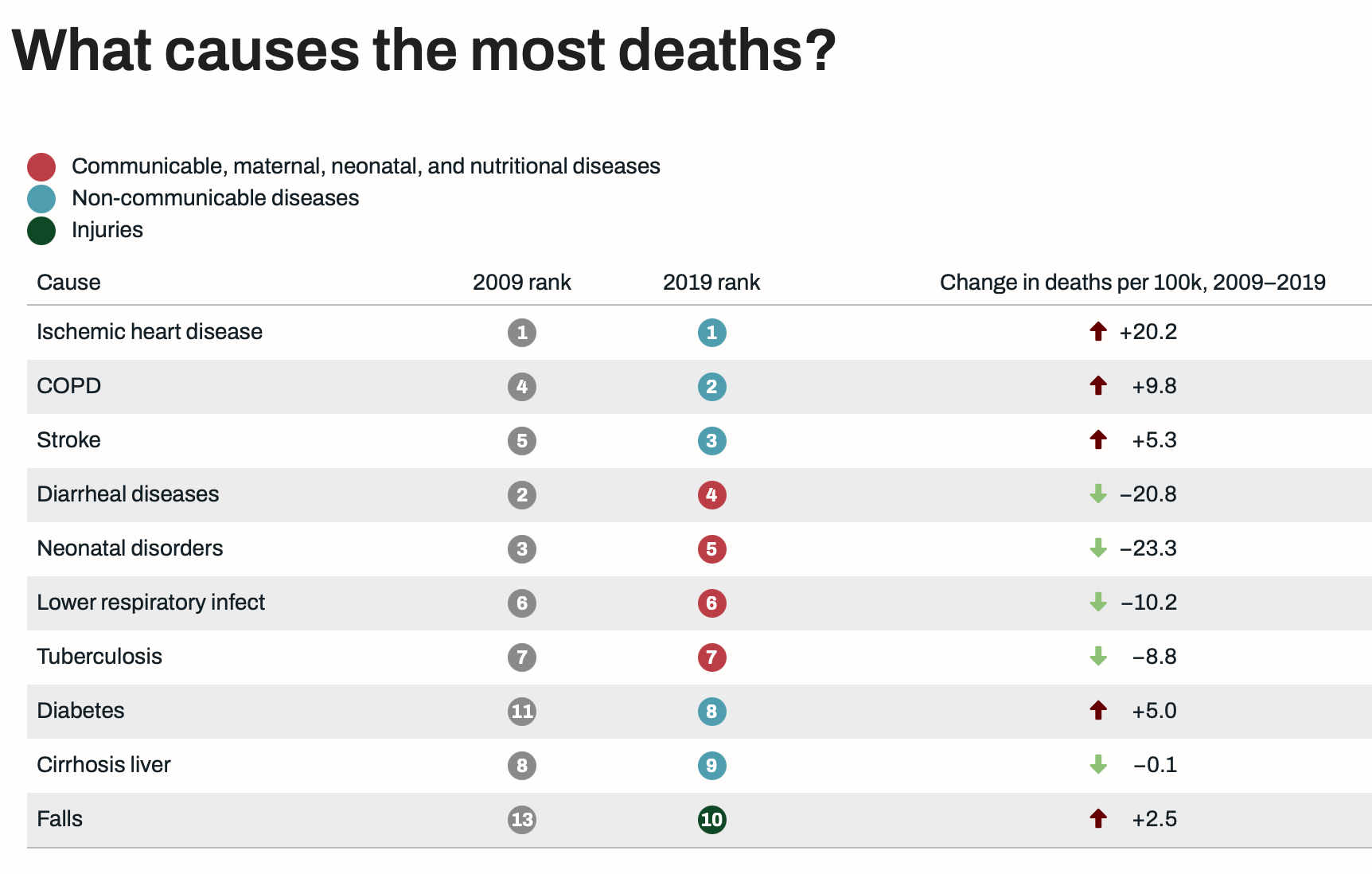
The genes we are born with affect 10-30% of our lifespan. The rest of our lives lived are a function of our environment (geography, political, social, etc) and our life choices (smoking, alcohol, food, physical activity, etc). The graph below shows the risk factors that kill in India.
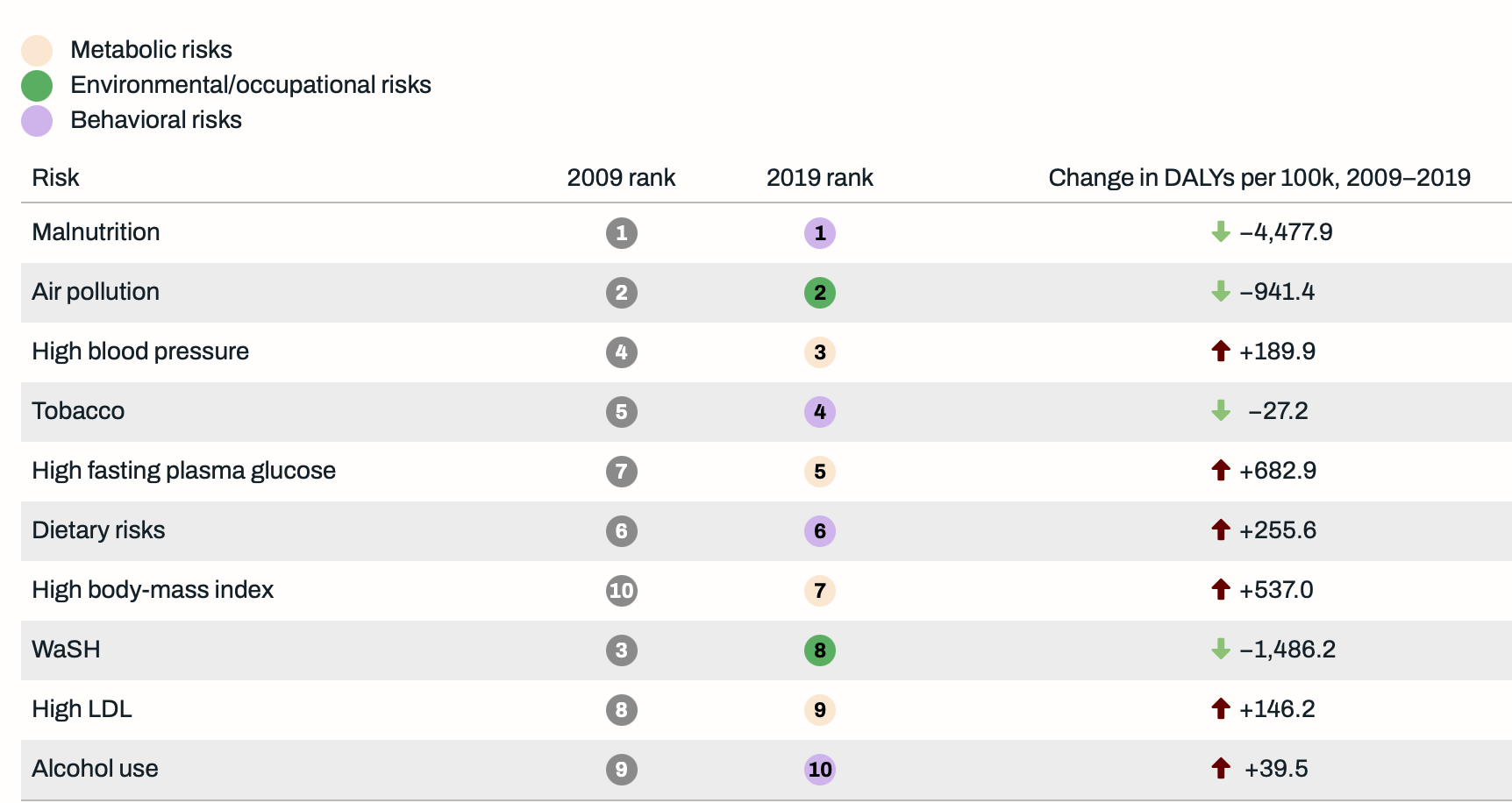
Malnutrition is still the biggest killer, while high body-mass index comes in only at 7. In countries like India, malnutrition is any day worse than being obese. Any day. Ask your grandparents if they are still alive, what it means to be malnourished and not to have food.
If you see the risk factors that kill and the diseases that kill, those who are better educated and have reasonable amount of money and access to healthcare, will rarely if at all be afflicted by Nos 3 to 6 of the top 10 causes of death and will rarely have issues with the first and 8th risk factors that can lead to death.
Which again brings us to the fact that if you are rich and educated in India, you will just live longer than those who are not…if you are reading this, you likely fall into that bracket and most of us currently in our late 50s or 60s will easily live till we are 90 or 95, barring some cataclysmic event that changes the trajectory of our lives (e.g. like Covid or a long-drawn out war or an unexpected climate event).

Most of us will sail through, losing a few of our friends and family to heart attacks, strokes, accidents, cancers and sometimes infections, but otherwise we will trudge along, living and living and living…more and more and more…and longer and longer and longer…lingering past any due date that our ancestors may have predicted. Jena and colleagues [4] have estimated that with an LE of 70, 8.9 years of these will be lived in suffering with diseases, which means a healthspan of about 62 years. But for many of us whose LEs are already going to be 90 odd years, perhaps more than 10-15 years of those could be spent with some form of suffering from chronic diseases, making us dependent on family or the system to live fruitful lives.
Why are we living so long? Early stressors in life (poverty, war, malnutrition) reduce lifespan [5]. For those who are born in upper middle class and rich families and continue in the same socio-economic strata, these stressors no longer exist. Wars are few and far between (Ukraine, Gaza), and poverty and malnutrition don’t affect you once you are no longer struggling to make ends meet. As I had mentioned in my very first piece in Dec 2020, we have gone from an average LE of 42 years in 1809 to 72 years, in just over 200 years, most of which is thanks to clean water, adequate food availability, better sanitation, significantly reduced maternal and infant mortality, childhood vaccines, antibiotics and other drugs that have significantly reduced deaths from blood pressure, diabetes and heart attacks. Vaccines against other infections, and better disease management overall at an individual level add years to our lives. It is all cumulative and suddenly individual and population level measures have all come together to increase LEs globally in each and every country. There are discrepancies based on access and income levels, but these are to be expected…but even then everyone is living longer and longer.
What does this mean for you and I?

Whether you follow the Atmasvasth guide to living long healthy or not, you will pretty much live till 90. What would be your main concerns? That you live these long lives without physical and mental disability. That basically means not having heart attacks and strokes, not getting knocked out by infections, not getting dementia, not falling and fracturing and being able to carry out your daily activities on your own without being dependent on family and the system, with enough money to be able to live well till you die. What this guide and others like these do, is not necessarily to help you live longer, but to help you live these longer years better, with as little disease and suffering as possible, with as long a healthspan as possible.
Footnotes
1. GBD 2021 Demographics Collaborators. Global age-sex-specific mortality, life expectancy, and population estimates in 204 countries and territories and 811 subnational locations, 1950-2021, and the impact of the COVID-19 pandemic: a comprehensive demographic analysis for the Global Burden of Disease Study 2021. Lancet. 2024 Mar 8:S0140-6736(24)00476-8.
2. Haring B et al. Systolic Blood Pressure and Survival to Very Old Age: Results From the Women's Health Initiative. Circulation. 2024 Apr 16. doi: 10.1161/CIRCULATIONAHA.123.067302.
3. GBD 2021 Causes of Death Collaborators. Global burden of 288 causes of death and life expectancy decomposition in 204 countries and territories and 811 subnational locations, 1990-2021: a systematic analysis for the Global Burden of Disease Study 2021. Lancet. 2024 Apr 3:S0140-6736(24)00367-2.
4. Jena D et al. Statistical modeling and estimating number of healthy life years lost and healthy life expectancy in India, 2000-2019. Aging Med (Milton). 2023 Sep 27;6(4):435-445.
5. Haapanen MJ et al. Early growth, stress, and socioeconomic factors as predictors of the rate of multimorbidity accumulation across the life course: a longitudinal birth cohort study. Lancet Healthy Longev. 2024 Jan;5(1):e56-e65.
Atmasvasth Newsletter
Join the newsletter to receive the latest updates in your inbox.



